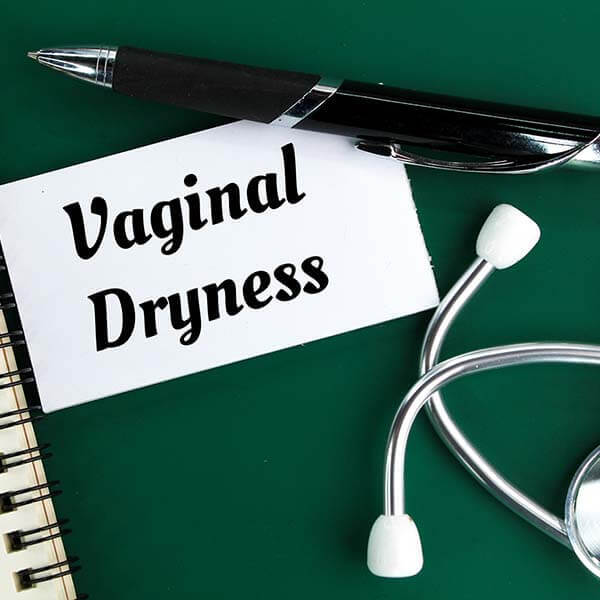
Vaginal dryness happens when your body doesn’t make enough natural moisture. This can cause discomfort in daily life and during intimacy. It has many causes—but there are also many solutions. Visit our DOXXES store on North Freeway / FM 1960 to explore products that can help you feel more comfortable.
What Is Vaginal Dryness?
Vaginal dryness means the vaginal area doesn’t stay moist or lubricated as it should. Doctors may describe it as:
- Superficial: At the opening
- Deep: Further inside the body
- Provoked: Triggered during arousal or sex
Why Does Vaginal Dryness Happen?
Emotional causes may include:
- Stress about work, health, or relationships
- Past trauma or uncomfortable experiences
- Low mood or depression
Physical causes may include:
- Hormone changes from menopause or breastfeeding
- Infections or chronic illnesses like diabetes
- Weak pelvic floor muscles
- Certain medications (like allergy pills or antidepressants)
Often, several causes combine to make the symptoms worse.
Examples and Triggers
Common signs include:
- Mild itching during workouts or daily movement
- Burning or tightness when using a tampon
- Pain or dryness during sex
- Discomfort after using scented soaps or wearing tight clothing
To find what’s triggering the dryness:
- Track it: Keep a journal of symptoms, stress, and products used
- Compare: Look at changes during your cycle or different days
- Adjust: Try new lubes or change your routine to see what works better
Who It Affects and How It Feels
Vaginal dryness can affect people at any age. It may lower self-confidence, impact body image, and create stress in relationships. Some women feel less interested in sex. Partners may feel unsure how to help. Open communication can ease this tension and improve trust.
How a Sex Therapist Can Help
A sex therapist gives you a safe space to talk openly. They may:
- Explore your history and symptoms
- Check for emotional causes like stress or anxiety
- Teach you relaxation, communication, and body awareness exercises
This approach can help both mind and body heal together.
Ways to Treat Vaginal Dryness
Counseling and Therapy
- Talk therapy helps reduce anxiety and improve desire
Hormonal and Non-Hormonal Options
- For menopause-related dryness, low-dose estrogen creams or rings may help
Lifestyle Tips
- Use fragrance-free soaps
- Drink plenty of water
- Breastfeeding moms may benefit from gentle routines and hormone-balancing tips
Lubricants
- Look for pH-balanced, water-based lubricants that are free of parabens and added scents
Pain Relief Tips
- Try warm baths, soothing gels, or slow reintroduction to sex with comfort-focused techniques

How DOXXES.love Can Support You
At DOXXES.love, we carry trusted wellness products, including:
- Water-based lubricants for daily or sexual comfort
- Pelvic floor exercisers to improve muscle strength
- Gentle vibrators designed for sensitive skin
- Prostate massagers for shared pleasure
Each item comes with clear instructions. These tools, along with therapy or simple changes, can make a big difference.
Talking About Vaginal Dryness
- Say what you feel: “I get worried when I feel pain”
- Use “I” statements to avoid blame
- Choose quiet, private moments to talk
- Read articles or books together as a couple
- Don’t wait—ask a professional for help early
Visit the DOXXES Store on North Freeway / FM 1960
Stop by our store for a friendly, discreet shopping experience. Our team is trained to help you find the right solutions—without judgment. We’re here to support you every step of the way.
Conclusion
Vaginal dryness is common and manageable. With the right products, open conversation, and support from experts, you can feel more at ease. Visit DOXXES on North Freeway / FM 1960 for comfort, guidance, and relief that fits your life.
FAQs
- What is vaginal dryness?
It means your body isn’t making enough natural moisture, which can cause irritation. - What causes it?
Hormone changes, stress, medication, or medical conditions like diabetes. - Is it normal during menopause?
Yes. Lower estrogen levels after menopause often cause dryness. - Can younger women have it?
Yes. Birth control, stress, or breastfeeding can lead to dryness. - How does it affect sex?
It may cause pain, less pleasure, or lower interest in intimacy. - What treatments are available?
Moisturizers, lubricants, and hormone therapy can all help. - Are water-based lubricants safe?
Yes. They are usually the most gentle and easy to use. - Can food or drink help?
Staying hydrated and eating healthy fats like omega-3s may support vaginal tissue. - Can emotions cause dryness?
Yes. Stress, anxiety, and depression can reduce natural lubrication. - When should I see a doctor?
If dryness is ongoing, painful, or affecting your quality of life, see a healthcare provider.
